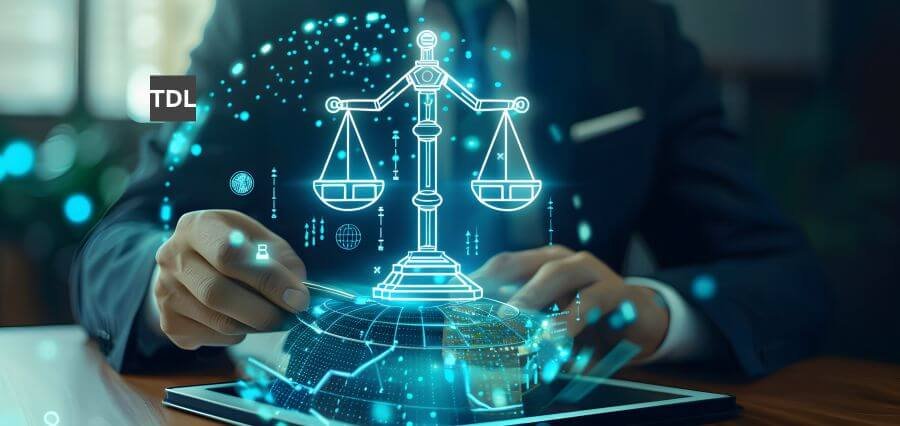AI is rapidly transforming the legal landscape and promising increased efficiency, better client service, and a competitive edge for law firms that provide Legal Services. AI redefines legal expertise by helping enhance a lawyer’s capabilities and changing how lawyers handle cases, perform research, and interact with clients. The result is multifaceted and only bound to grow through the vast impact of automating routine tasks to delivering predictive insights. By 2025, AI will be able to simplify operations and improve client services within the Legal Services sector.
AI Driven Automation and Efficiency
AI is very good at automating routine tasks in the legal sphere. Among those are sorting documents, doing basic research, and drafting a contract. NLP technology can analyze huge amounts of text to find relevant clauses, highlight risks, and summarize key points. AI might check contracts more faster and accurately than the human counterparts, finding discrepancies and potential issues easily without any human mistakes, hence giving more reliable results to the clients who seek Legal Services.
By automating these repetitive tasks, AI allows lawyers to do other things like building case strategies and advising clients on matters that carry more value. According to the Future of Professionals Report, AI could free up 4 hours per week for legal professionals. Law firms would be able to reduce overheads and turnarounds in favour of their clients by delegating repetitive aspects of legal practice to AI while providing efficient delivery of Legal Services.
Enhancing Legal Research and Analysis
AI improves legal research by using natural language queries and contextual understanding, which can provide relevant case law, statutes, and regulations quickly and accurately. AI-driven case management systems can analyze patterns, predict outcomes, and suggest strategies. AI tools can identify trends in similar cases, saving time and ensuring better results for those utilizing Legal Services. However, AI also finds its way into litigation prediction and transactional tools, where companies sometimes boast of predictive accuracy rates of up to 90%. AI algorithms sift through vast amounts of documents to identify information, sometimes making the provision of Legal Services by lawyers more efficient and accurate.
Client-Focused Solutions and Personalized Service
Through AI-powered solutions in legal technology law firms offer customized services to clients which results in a new relationship model between lawyers and their clients. An analysis of past client interactions and preferences and behavioral patterns through AI-powered tools enables personalized recommendation generation. The application of artificial intelligence by legal professionals enables automated process handling of routine legal work and delivery of predictive case forecasts and instant language support services as well as modified updates and reports creation. Law firms benefit from these tools because attorneys gain individual freedom to serve customers while maintaining knowledge of their unique case requirements which leads to better access to Legal Services.
Transforming Legal Education
Exponential growth in artificial intelligence applications transformed legal education so law schools began teaching principles of AI ethics to their students. Educational institutions identify the necessity for students who plan to become lawyers to understand AI systems as well as its capabilities and constraints within legal contexts. The practice of using generative AI tools like ChatGPT is either permitted or mandated by certain professors who also instruct students to verify the accuracy of information generated from these tools.
Integration and Access
Established legal software is increasingly incorporating AI tools and functions, thereby making AI more accessible and user-friendly for legal professionals. AI features within established legal software boost productivity and make the workflow easier to manage. AI can be incorporated into multiple layers of an attorney’s work and woven into the fabric of daily tasks.
Challenges and Considerations
There is some downside to AI, however. Lawyers are concerned about the value proposition to their clients, mostly because clients find out more and more services being provided by AI. Lawyers have to prove that even though AI performs many services, they still pay for. Lawyers can’t be replaced totally by AI. A powerful tool, AI would enhance capabilities of legal professionals. The legal sector needs to incorporate AI advancements. It should encourage skills that humans cannot replicate or replace, especially nuanced judgment and creativity.
Read more: Haitham Ajjour: Driving Excellence in Retail Operations and Strategy




